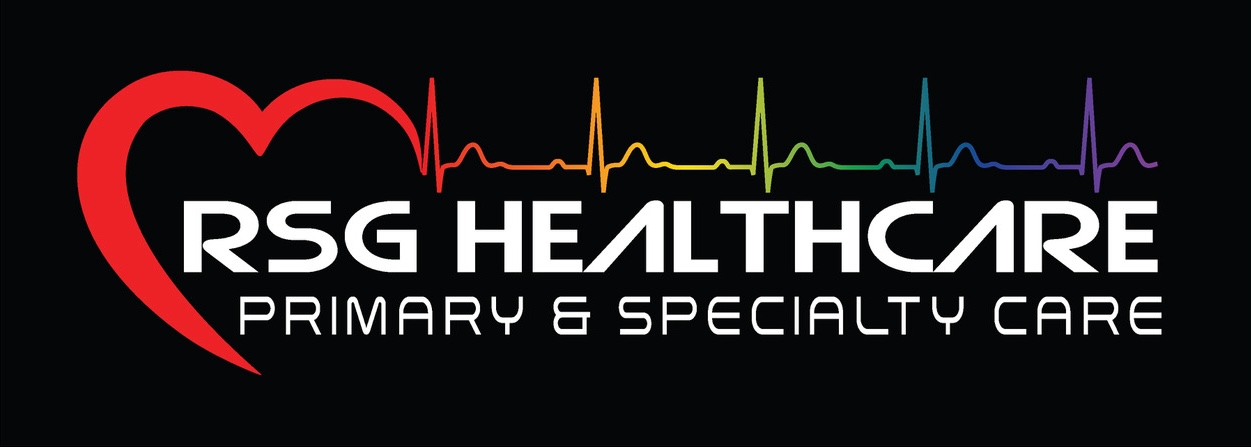Gender Affirming Hormone Therapy (GAHT)
Inclusive environment for GAHT treatment following WPATH guidelines.
Description :
For many in the transgender and non-binary community, gender-affirming hormone therapy (GAHT) allows them to change their secondary sex characteristics to align with their gender identity. The process of GAHT involves discussions with your health care provider about your goals for hormone therapy, lab testing, and taking prescription medications by mouth, patch, gel, or injection.
Whether you are considering feminizing or masculinizing hormone therapy, RSG Healthcare's LGBTQ+ Health program provides you with a comprehensive team of experienced and compassionate providers who treat gender diverse patients in Phoenix, AZ.
About Feminizing Hormone Therapy
Feminizing GAHT involves using estradiol (a form of estrogen) with or without progesterone and another medication, called an anti-androgen, to further suppress the body’s production of testosterone. Transgender women who have had an orchiectomy (removal of the testicles) do not need to take an anti-androgen medication as part of their hormone therapy.
The desired effects of feminizing hormone therapy may include:
- Breast development
- Softer skin
- Fat redistribution to a female pattern
- Decrease in testicle size and erection frequency
The potential negative side effects of feminizing GAHT may include:
- Blood clots in the legs (deep vein thrombosis)
- Blood clots in the lungs (pulmonary embolism)
- Higher levels of triglycerides in the blood that can increase the risk for heart disease, stroke, hypertension, and osteoporosis
- Mood changes like depression, suicidal feelings, anxiety, psychosis, or worsening pre-existing mental or emotional illnesses
- Increased risk of breast cancer and non-cancer breast tumors
- Possible loss of fertility (ability to produce sperm)
About Masculinizing Hormone Therapy
Masculinizing GAHT involves taking testosterone in a patch, gel, or injectable form (studies show the pill version is not effective).
The desired effects of masculinizing hormone therapy may include:
- Increased muscle mass
- Development of facial and body hair
- Deeper voice
- Fat redistribution to a male pattern
- Enlargement of the clitoris
- End of menstruation
The potential negative side effects of masculinizing GAHT may include:
- Elevation of bad cholesterol (LDL) and decreased good cholesterol (HDL), increasing the risk for a heart attack or stroke
- Significant weight gain
- Increase in red blood cells that can increase the risk of blood clots, stroke, or heart attack
- Increased risk of diabetes
- Increased risk of hypertension
- Mood changes, including irritability and depression
- Development or worsening of acne
- Body odor
- Fertility issues (inability to become pregnant)
Impact on Fertility and Pregnancy
Please note that gender-affirming hormone therapy is not a form of pregnancy prevention and, with masculinizing hormone therapy, exposure to testosterone will cause birth defects. If you receive GAHT you should speak to your health care provider on approaches to take if you wish to prevent pregnancy. There are many safe long term contraceptive options that we can discuss at RSG Healthcare with you.
The long-term impact of gender-affirming therapy on health and fertility is not fully known. We do understand that families are formed in many ways. A member of the RSG Healthcare team can talk to you about sperm or egg preservation if you are considering becoming a biological parent in the future. Any preservation of sperm or eggs ideally should be done prior to starting hormone therapy.
Special Considerations Before Choosing Gender-Affirming Hormone Therapy
- Lifelong medication management – Because some of the effects of hormone therapy are not reversible, patients should be committed to potential lifelong medication management from either their primary care provider or an endocrinologist who understands transgender and non-binary health.
- Therapy or counseling – Patients who receive GAHT should expect mental and physical changes that are more consistent with their gender identity and may want to prepare for some of the social implications of those changes (name and gender changes on identification; questions from family members, friends, and co-workers). A therapist or counselor can help you navigate these changes as well as any mood or behavioral disturbances that may occur from hormone therapy. We at RSG Healthcare follow the WPATH Guidelines and require a letter from a gender therapist prior to initiating GAHT.
- Regular laboratory tests – Routine laboratory tests will be needed to monitor you for possible side effects of GAHT.
- Breast cancer screening – Transgender women differ from non-transgender women in respect to the length of exposure to estrogen and progestogens. Breast cancer screening for transgender women is therefore not recommended until they have had at least 5 to 10 years of feminizing hormone use and are 50 years of age or older.
- Insurance – GAHT is typically covered by most insurance plans. Your provider may have to complete a prior authorization with your insurance company on your behalf before you begin hormone therapy. If your insurance does not cover hormone therapy or if you do not have insurance, prices for the hormones have become more affordable as the medications have become generic. Your provider can work with you to choose the most cost-friendly option(s).
Other Services That Complement Gender-Affirming Hormone Therapy
RSG Healthcare provides an array of services for the transgender and non-binary community, including primary care, mental health care, masculinizing/top surgery and gender-affirming hysterectomy referrals to affirming surgeons for transgender men, and orchiectomy (removal of the testicles) referral to affirming surgeons for transgender women.
RSG Healthcare also specializes in sexual health for members of the LGBTQ+ community. These services include PrEP and TelePrEP for HIV prevention, screening and treatment for sexually transmitted diseases, medications for erectile dysfunction, and HPV vaccinations for patients up to age 45.









